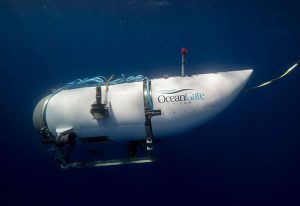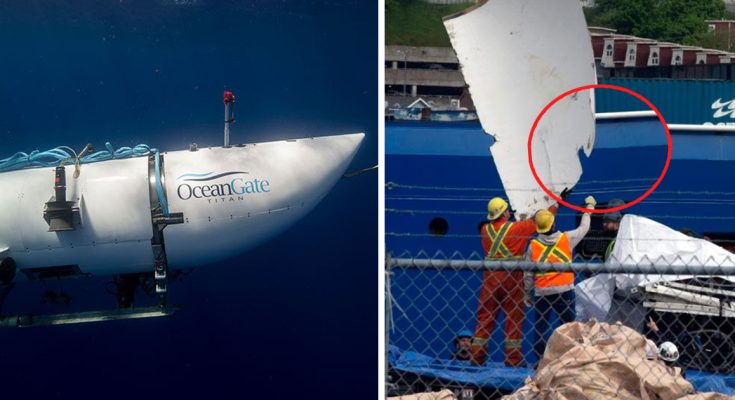“Presumed human remains” have been found among the evidence recovered from the ocean bed where the debris of the doomed Titan submersible was found.
Speaking yesterday, the US Coast Guard confirmed that the remains were recovered “within the wreckage” of the submersible, one week after it was determined that the vessel had imploded, killing all five souls onboard.
On Wednesday (June 28), pieces of the debris were recovered and returned to land, giving the world a first glimpse of all that remains of the sub. The Titan’s planned mission to view the wreckage of the Titanic captured worldwide attention early last week after it went missing just one hour and forty-five minutes into its dive.
The search for the submersible then came to a sad but conclusive end last Thursday, when debris were found near the wreck of the Titanic, consistent with a catastrophic implosion.
Said debris were recovered and returned to port in St. John’s, Newfoundland yesterday courtesy of the ship Arctic Horizon.
Photos and videos show the crew unloading the recovered pieces of the sub onto the pier. The wreckage will be used in a Coast Guard investigation into the catastrophe.

In a press statement yesterday, Pelagic Research Services said their team has “successfully completed off-shore operations” and “will be in the process of demobilization from the Horizon Arctic this morning.”
“They have been working around the clock now for ten days, through the physical and mental challenges of this operation, and are anxious to finish the mission and return to their loved ones.”
According to CNN, citing the US Coast Guard, presumed human remains were recovered along with the debris and will be analyzed by US medical professionals in the coming days.
The Titan’s passengers are said to have paid $250,000 for what would have been an eight-day expedition to the wreck of the RMS Titanic. Concerns had previously been raised about the safety of the operation.
“This was a company that was already defying much of what we already know about submersible design,” Rachel Lance, a Duke University biomedical engineer who has studied physiological requirements of survival underwater, told CNN.
“I was very suspect of the technology that they were using. I wouldn’t have gotten in that sub,” film director and ocean explorer James Cameron told BBC, adding that he believes OceanGate “didn’t get certified because they knew they wouldn’t pass.”
Our thoughts and prayers go out to the families of the souls who lost their lives onboard the Titan submersible. May they rest in peace!
